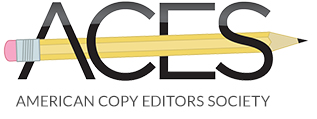Is “might” always right? In this case, it wasn’t.
As Melanie Sill, our executive editor, wrote on the Editors’ Blog on Thursday, we had a bit of a discussion about a phrase in this lead on restaurant writer Greg Cox’s Epicurean column:
Howdy, pardners. I’ve got some news about a new barbecue restaurant, and seeing as how Carolina folk are a might touchy about the subject, I’ll try to break it to you gently.
Some thought the phrase should have been “a mite touchy.” Others thought “might” was right. The difference hinged on whether we read the phrase as “somewhat touchy” or “very touchy.” “Mite” is used colloquially to mean “a little” or “somewhat.” Regular dictionaries didn’t help us with the other interpretation using “might,” although some extrapolated that it could be a version of “mighty,” as it “We are mighty touchy about our barbecue.” A colleague, Chuck Small, checked an unabridged dictionary. He found “might” listed a colloquialism for “considerable amount.” Still, the mite-might debate went on.
[This morning, at home, I consulted Merriam-Webster’s Collegiate Dictionary, which is not our official AP-approved dictionary. The M-W gives “might” as dialect for “a great deal.”]
It was time to go to the source. I sent e-mail to Greg Cox to ask him whether he meant “a little touchy” or “very touchy.” Greg replied that he meant to use “a mite touchy,” meaning “a little touchy.”
“Mite” as way of saying “a little bit” comes from a small copper coin, like the widow’s mite in the biblical story of the poor woman who gave what she could (Luke 21:1-4). The Random House Webster’s College Dictionary dates this meaning of “mite” to 14th century English. The dictionary called “a mite” an idiom.
So here we have colloquialism, dialect and idiom all coming together to confuse us! I think “a mite touchy” works in Greg’s fine folksy lead, but as our discussion indicates, the spelling “might” for “mite” threw some of us off. When we use or render colloquial speech in print, we can stumble over terms that we normally hear but don’t write. (I almost typed “wright”!)
Sometimes, for instance, when writers render a dialect version of “whip,” as in “The burly biker told the hippie flashing a peace sign, ‘I’m going to whip your butt.'” they write “whup” or “whoop.” Neither of those spellings sounds like the “whip” I think of in a certain North Carolina dialect. The vowel in “whip” in that dialect sounds to me like a diphthong, a combination of the oo in ooze and the u in up. [I have impaired hearing, so my interpretations of sound are probably slightly off.] I prefer to have the word written as “whip” and let the reader add the sound.
Another problem with using a colloquial turn of phrase or rendering a dialectal spelling of a word is that we sound patronizing. As if we are saying, “Oh, listen to the funny country people!” or “Aren’t these mountain folks quaint?” But then I think of one of the greatest novels in English, “The Adventures of Huckleberry Finn,” and remember that in the hands of a skilled writer such dialect can make characters come alive.
Speaking of quaint: A hippie flashing a peace sign?! I am SO last century!
This article was originally posted by the Raleigh News & Observer, a subsidiary of The McClatchy Co.; is posted here to provide continuity; and is copyright © 2011 The News & Observer Publishing Company, which reserves the right to remove this post.
